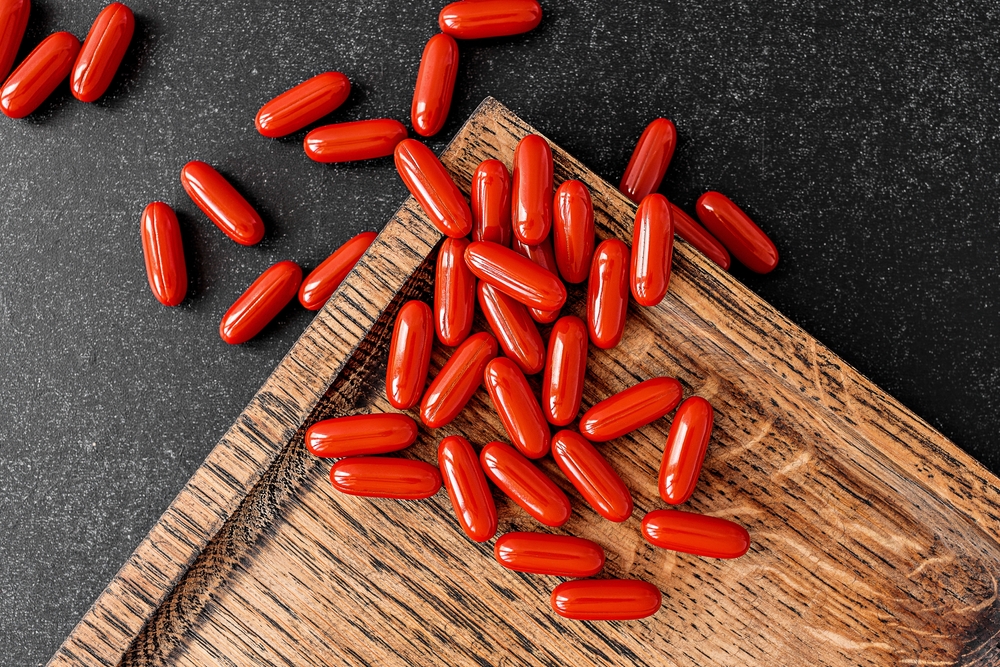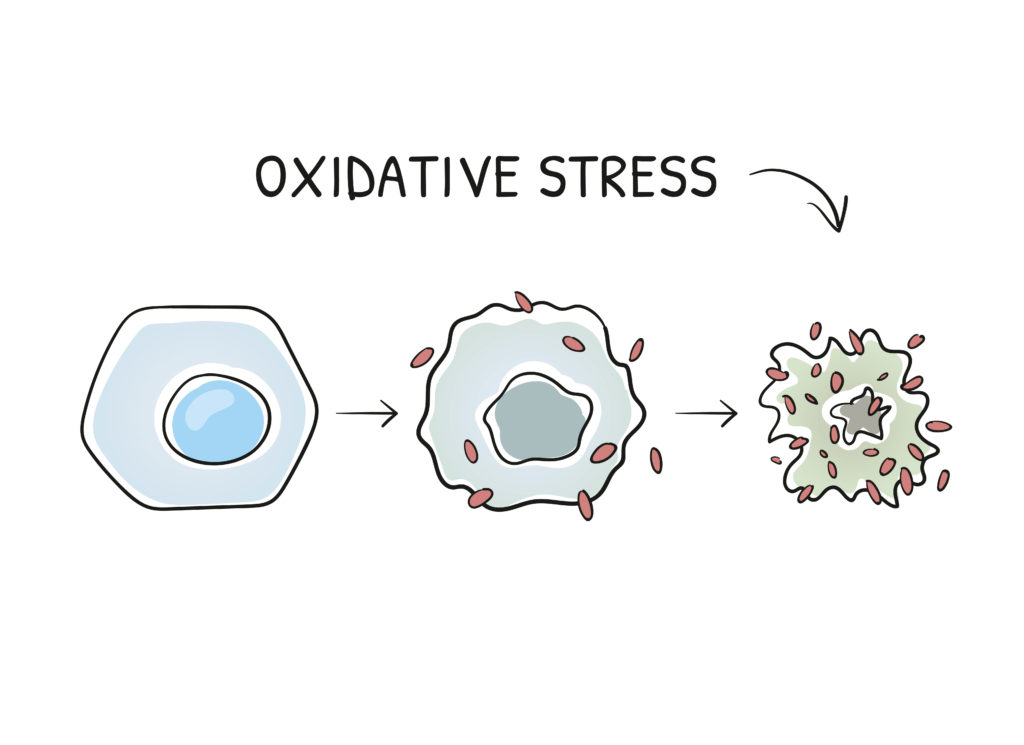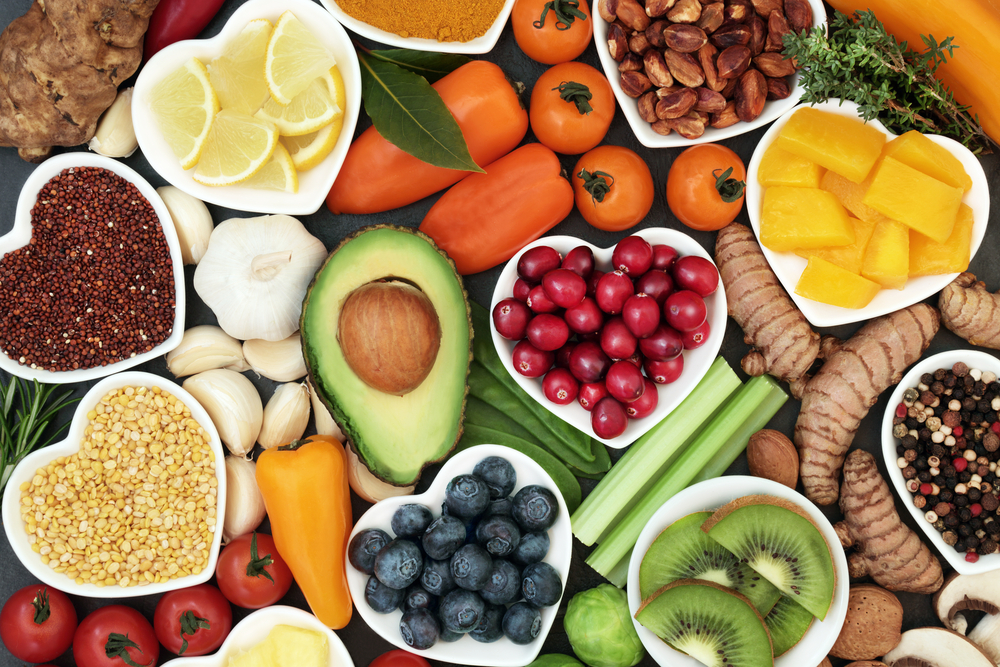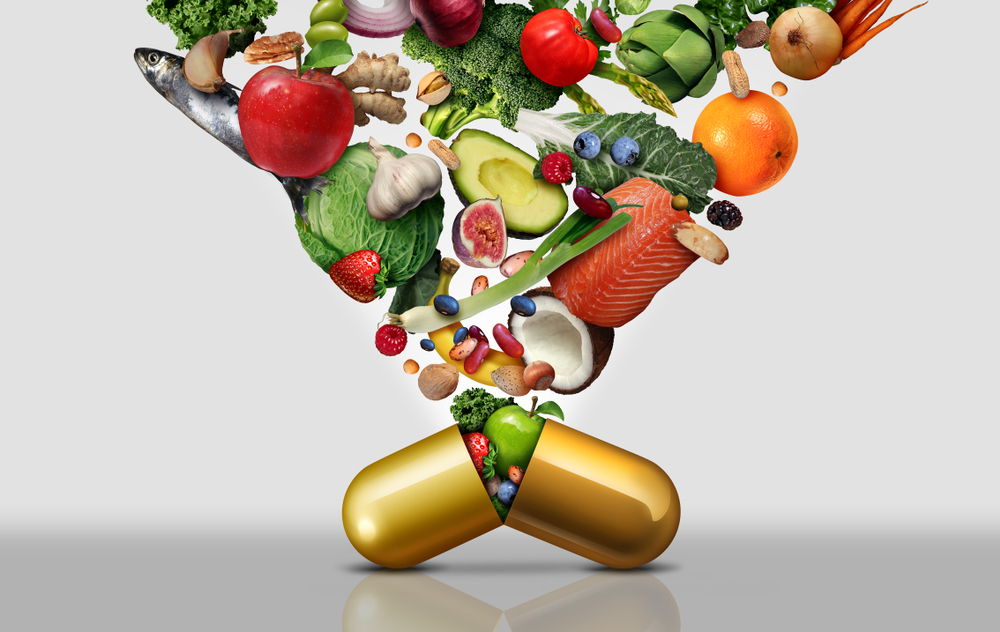Ubiquinol is the active antioxidant form of coenzyme Q10 (CoQ10). Similar to a vitamin, this substance is naturally synthesized by the body and is found in all cells. The main role of ubiquinol is to promote the production of energy in the cells, thus allowing
better functioning of the organs, and to avoid oxidation of the cells and cholesterol.
CoQ10 comes in two forms: ubiquinol (the active antioxidant form) and ubiquinone (the oxidised form). Ubiquinol is the natural form in which CoQ10 occurs in the body. In the blood plasma of a young, healthy body, more than 95% of CoQ10 is in the Ubiquinol form.
Ubiquinol, the recipe for staying young, healthy and performing?
If you are 20 years old and healthy, your body produces enough ubiquinol. On the other hand, if you were to take oxidised "classic" Co Q10, you would have to spend a lot of energy and nutrients to convert it into active ubiquinol.
Every year the level of ubiquinol in the body decreases. This indicates that there is a strong link between ubiquinol and age. Studies have shown that the concentration of ubiquinol in the body starts to decrease from the age of thirty.
The heart experiences the fastest decline. In addition to age, other factors are responsible for this ubiquinol deficiency, in particular increased demand on the body due to sporting activity.
Ubiquinol has been shown to play an essential role in the production of energy in our cells, thereby optimising performance and recovery. Many sportsmen and professional clubs are already "addicted" to this natural molecule, which is not harmful to health and is certified non-doping.
Why take L-Carnitine?
Since L-Carnitine plays a role in mobilising fatty acids in the body so that they can be properly burnt by the mitochondria and converted into energy, it is suggested that it be consumed before exercise so that it can be effective and have positive effects.
Whether it is in powder, capsule or drinkable solution, it is sufficient to take 1 to 2 g about 45 minutes before physical effort. In any case, the positive effects felt by L-Carnitine at the level of the muscle are considerable.
It is also interesting to take it in post-training to improve muscle recovery, but also to maintain anabolism. Muscle pain and soreness are much less felt when taking supplements. However, in order to have visible results at the muscle level, L-Carnitine must be taken regularly for at least 6 months. During this period it is possible to see the muscular pain reduce.
It should be noted that the only supplementation in L-Carnitine cannot claim to burn fats, but it is always necessary to associate it with the physical effort. On the other hand, its contribution to sporting performance is undeniable.
How to take more ubiquinol?
The recommended dose of ubiquinol varies from person to person. However, older people or those who suspect that their ubiquinol concentration is lower (e. g. because they feel tired more quickly) can start by taking 200 mg of ubiquinol per day.
The dose is usually halved after four weeks. Research has shown that most people taking 100 mg per day for a week notice a change. Clinicians assume that a standard recommended dose of 50 to 200 mg per day is appropriate to restore optimal ubiquinol concentration.
Ubiquinol is safe and there is no risk of overdose. If you do not feel well, it is possible that the dose of ubiquinol you are taking is not yet sufficient.
Ubiquinol is also available as a dietary supplement so that you can take the optimal dose every day.






